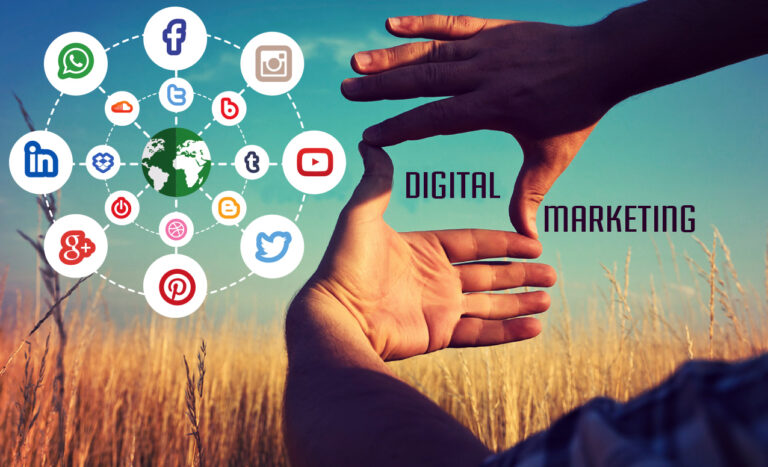In today’s competitive landscape, a strong online presence is vital for business success. However, building and managing that presence can be challenging, especially for businesses without the right expertise. That’s where a digital marketing agency comes into play. By partnering with the right agency, businesses can enhance their marketing efforts, attract more customers, and grow their brand effectively.
But with so many agencies available, how do you choose the best one? This article will guide you through the process of identifying the ideal digital marketing agency for your business needs in the USA.
Define Your Business Goals and Needs
Before searching for a digital marketing agency, it’s essential to define your goals. What do you want to achieve with digital marketing? Common objectives include:
- Increasing website traffic.
- Generating more leads or sales.
- Enhancing brand awareness.
- Improving social media engagement.
- Building a robust email marketing campaign.
By having clear goals, you can find an agency that specializes in the services aligned with your needs. For example, if your primary goal is to improve search engine rankings, look for agencies that excel in SEO strategies.
Look for Industry Experience
Not all digital marketing agencies are created equal, and their experience in your industry can make a significant difference. An agency familiar with your business niche understands your target audience, competitors, and market trends.
When evaluating agencies, ask for case studies or examples of their past work with businesses similar to yours. A digital marketing agency with proven success in your industry is more likely to deliver results.
Assess Their Range of Services
A great digital marketing agency should offer a wide range of services to cater to different aspects of your marketing strategy. Some key services to look for include:
- Search Engine Optimization (SEO): Improving website visibility on search engines.
- Pay-Per-Click (PPC) Advertising: Creating targeted ad campaigns for quick results.
- Social Media Marketing: Managing and growing your presence on platforms like Facebook, Instagram, and LinkedIn.
- Content Marketing: Developing blogs, videos, and other content to engage your audience.
- Email Marketing: Building and managing email campaigns to nurture leads.
If you need multiple services, choosing a full-service agency can save you time and effort by consolidating your marketing needs under one roof.
Check Their Online Presence and Reputation
A digital marketing agency that claims to excel in online marketing should have a strong digital presence themselves. Start by visiting their website: Is it professional, user-friendly, and informative? Do they have a blog showcasing their expertise?
Next, check their social media profiles. Are they active, engaging, and consistent with their branding? An agency that demonstrates its ability to market itself effectively is more likely to replicate those results for your business.
Don’t forget to research reviews and testimonials. Platforms like Google Reviews, Clutch, or LinkedIn can provide insights into the experiences of other businesses. Positive feedback and high ratings are strong indicators of a reliable agency.
Evaluate Their Communication and Transparency
Effective communication is essential for a successful partnership with a digital marketing agency. During initial interactions, pay attention to how well they listen to your needs and answer your questions.
A good agency should:
- Clearly explain their strategies and processes.
- Provide realistic expectations for results.
- Offer regular updates on campaign performance.
- Be transparent about pricing, timelines, and deliverables.
Avoid agencies that make vague promises or guarantee unrealistic results, such as achieving first-page Google rankings overnight.
Analyze Their Performance Metrics
Measuring the success of your digital marketing efforts is crucial, and the right digital marketing agency should provide clear performance metrics to track progress. Ask about the tools they use to analyze campaign performance and the key metrics they focus on, such as:
- Website traffic and conversion rates.
- Cost per lead (CPL) or cost per acquisition (CPA).
- Engagement rates on social media platforms.
- ROI (return on investment) for advertising campaigns.
An agency that prioritizes data-driven strategies will be better equipped to optimize your marketing efforts for maximum impact.
Consider Their Pricing Structure
While cost shouldn’t be the sole factor in your decision, it’s important to understand the pricing structure of a digital marketing agency and ensure it aligns with your budget. Some agencies charge a flat fee, while others work on a project basis or a percentage of your ad spend.
Compare pricing among several agencies, but be cautious of those offering significantly lower rates—they may cut corners or lack the experience necessary to deliver quality results. Instead, focus on finding an agency that offers value for your investment.
Test the Waters with a Trial Project
If you’re unsure about committing to a long-term contract, consider starting with a small trial project. This allows you to evaluate the agency’s capabilities, communication, and overall fit for your business.
For example, you could hire them for a one-time SEO audit, a short social media campaign, or content creation. Based on the results, you can decide whether to continue working with them.
Conclusion
Finding the best digital marketing agency for your business is a critical decision that can significantly impact your success in the competitive online marketplace. By defining your goals, assessing experience and services, and evaluating their communication and performance, you can choose an agency that aligns with your vision.Remember, the right agency will not only help you achieve your immediate marketing objectives but also act as a long-term partner in growing your brand. With careful research and a clear understanding of your needs, you can find a digital marketing agency that empowers your business to thrive in the digital age.
